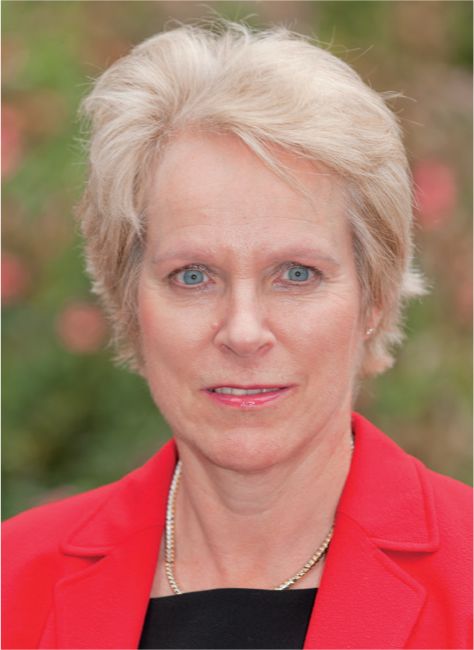
The brave openness of journalist Deborah James regarding her deteriorating health and progression to hospice care at home are a reminder that all too often, expected death and end of life care are not widely discussed. The COVID-19 pandemic caused everyone to reflect upon their own mortality and that of their nearest and dearest, with older people being the most vulnerable to the risk of illness and death. Older people were asked to ‘shield’ themselves, which may have exacerbated their fear of dying and deterred usual health seeking behaviours for medical needs, with enforced social isolation resulting in unrequited loneliness. The higher mortality rates among older people and the absence of the usual support systems and the rituals around a death probably increased the feelings of loss during the pandemic; but irregardless of the pandemic, older people will always experience more bereavements than other age groups.
Many older people experience the loss of a significant person such as a partner or offspring, and many will also experience multiple losses, especially if they live very long lives. Grief is a natural response to loss and reflects the ‘love’ which the bereaved person had for the deceased person. Kubler-Ross's (1972) seminal work proposed five stages of grief - initial shock or denial, anger, bargaining, depression and acceptance; sometimes, however, grief persists beyond the expected period of adjustment and becomes ‘complicated grief’ (Supiano and Luptak, 2014) which others refer to as ‘abnormal grief’ or ‘prolonged grief’. Complicated grief, or chronic mourning, is not only a distressing psychological state but it also impacts physical health and quality of life, especially among those with pre-existing conditions (Perng and Renz, 2018).
Complicated grief is more common in older adults, partly because they experience multiple losses which may accumulate over time, but also because they have fewer support and coping resources while simultaneously being expected to ‘move on’ (Perng and Renz, 2018). Identifying those experiencing complicated grief is a key component of community nursing practice and should include alertness to persistent deep sorrow lasting more than 6 months, and a loss of self-efficacy and self-esteem may be evidenced by changed self-care behaviours and weight loss. Perng and Renz (2018) noted the importance of distinguishing between depression with pervasive sadness and post-traumatic stress disorder associated with a focus on the death event because they require different treatment pathways and appropriate referral.
Grief is an individual experience and varies considerably, reflecting the relationship, when in the life course that the death occurs, and the circumstances of the death. A period and rituals of mourning permit recognition of loss and adaptation, allowing most people to adjust without healthcare intervention. Gerber et al's (2022) qualitative study using poetry with 18 bereaved older people (11 women; age range of 66-87 years; mean age of 74 years) revealed three themes: feeling unprepared, even if the death was ‘expected’; accumulation of losses with multiple losses which compound over time; and, the ripple effects of grief such as a loss of a role (such as a partner or caregiver), and other aspects associated with identity. The sample recounted how their families generally gave support for a few weeks following the death until the funeral, after which they returned to their normal lives. Many of the people in the study sample reported physical health effects such as the worsening of existing conditions or the emergence of a new condition and how primary care staff noticed changes in the behaviours related to self-care and self-medication, including increased alcohol consumption. Gerber et al (2022) recommended personalised support to meet the unique needs of an older person which fits well with high quality district nursing practice and the support of the housebound and their carers.
‘Complicated grief is more common in older adults, partly because they experience multiple losses which may accumulate over time, but also because they have fewer support and coping resources while simultaneously being expected to “move on”.’
The COVID-19 pandemic has caused a large number of deaths, many of which occurred while people may have been alone or while they were supported by healthcare staff dressed in personal protective equipment, rather than by their families. The pandemic also affected both the care and end of life experiences of those dying from other causes. Physical/social distancing, how bodies were handled, and changes to permitted bereavement rituals and cultural practices required people to grieve without their usual social support. In light of this, Goveas and Shear (2020) have speculated that there is likely to be an increase in complicated grief, especially among older people. They recommended promoting an awareness of the HEALING milestones and DERAILERS (Shear, 2020) so that families and friends can offer support to bereaved older people. In a pilot study, Reiland et al (2021) explored the relationship between loneliness and grief trajectories within 13 months of bereavement and found that loneliness was associated with grief symptoms and their severity, with depressive symptom changes moderating this association. This suggests that interventions by community nurses to reduce loneliness and depressive symptoms may lessen grief intensity and enable swifter adjustment to the loss of a loved one.
There are various sources of helpful information and advice for clients about coping with bereavement, including the information available on the AgeUK website https://www.ageuk.org.uk/information-advice/health-wellbeing/relationships-family/bereavement/. Marie Curie also offer a free bereavement support service https://www.mariecurie.org.uk/help/support/bereavement which is open to any bereaved person, regardless of when the death occurred.


